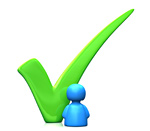
Feds reject requirement that e-voting machines produce paper trail
Tuesday, December 19, 2006 by: Ben Kage
Tags: e-voting, electronic voting, health news
- Newly released JFK files reveal Pentagon's role in creating Lyme disease and covid in the same lab
- Woman contracts WORLD'S DEADLIEST VIRUS after unknowingly being given the WRONG VACCINE
- Kiss Your Genetic Privacy Good-Bye! 23andMe Gets Green Light to Sell Your Intimate Genetic Details to Anyone They Want
- AI weather model outperforms traditional forecasts, boosts accuracy by 20%
- Revolutionize your diet with pomegranate: The miracle juice for gut health and metabolism
- Advisory: Ex-FBI agent exposes likely ATF honeypot operation selling illegal Glock switches
- The case for locking up the Deep State's biggest hatchet man...
- Analysis: The coming economic collapse, a mass uprising and Trump's three secret weapons to halt the growing revolt
- Sweden's migrant crisis deepens as failed green energy venture leaves thousands jobless, exposes systemic collapse
- At least 75 percent of Americans are unknowingly MEDICATED FOR STUPIDITY by fluoridated water – Utah now banning it
- U.K. unveils controversial pandemic preparedness tool: A double-edged sword?
- DHS Secretary Kristi Noem plans to dismantle FEMA
- Trump administration CUTS FUNDING to Gavi, the Vaccine Alliance - a major blow to the Bill Gates-backed entity
- Health Ranger Report: Ashton Forbes discusses TELEPORTATION ORBS and their role in MH370 disappearance
- Pediatric dentist exposes fluoride dangers as more states ban toxic water additive
- We are closer to all-out war in Europe, in Asia, and in the Middle East than most people realize
- Can special diets and supplements help kids with autism? A new research offers hope and hints at what works
- Gold reaches all-time high amid escalating trade tensions
- Newly released JFK files reveal Pentagon's role in creating Lyme disease and covid in the same lab
- Analysis: The coming economic collapse, a mass uprising and Trump's three secret weapons to halt the growing revolt
- Trump nominates VACCINE ZEALOT Susan Monarez to lead the CDC, sidelining RFK Jr.'s reform efforts
- Trump's greatest betrayal so far: Accelerating Middle East wars, silencing dissent, and serving Zionist masters
- CDC finally halts $11 billion COVID funding scam as health officials admit the ‘pandemic’ was a fraud
- The hidden dangers in your kitchen: How cooking methods impact diabetes, cancer and aging
- BEWARE: USDA allows genetically engineered vaccines to infiltrate organic food production
- Obama accused of laundering USAID funds to fuel global protest movements, regime change operations
- DEADLY DECEPTION: How COVID vaccines increased mortality rates and why authorities hid the truth
- Here are TEN all-natural ways to protect your garden without using harmful chemicals
- Dr. Mike Yeadon releases 15-minute testimony - WATCH - about genocidal intent of COVID “vaccines”
- Festive flavors: The sweet history, nutritional profile and health benefits of pecan pie
- Big Pharma's media takeover: How drug companies bought the news - and your health
- Dr. Suzanne Humphries makes bombshell appearance on Joe Rogan podcast, exposing vaccine industry deception back to POLIOMYELITIS
- Elon Musk: Aliens could be here on Earth RIGHT NOW
- 5 Simple steps to boost your brainpower: How to strengthen executive function in a distracted world
- Trump reverses course on Gaza plan, says “nobody is expelling Palestinians”
- California's social media censorship law struck down: A victory for free speech or a threat to online safety?
- Newly released JFK files reveal Pentagon's role in creating Lyme disease and covid in the same lab
- EPA advisor admits the agency is funneling billions to climate groups ahead of Trump’s return to White House
- California's social media censorship law struck down: A victory for free speech or a threat to online safety?
- Dr. Mike Yeadon releases 15-minute testimony - WATCH - about genocidal intent of COVID “vaccines”
- The Health Ranger releases “Vaccine Zombie” song and music video, using AI-animated zombies for the music video
- Florida takes a stand: DeSantis proposes permanent ban on mRNA vaccine mandates
- The pandemic as a tool for INDOCTRINATION: Understanding “The Indoctrinated Brain” by Dr. Michael Nehls
- “Why we influenced the 2020 elections”: Facebook files reveal the coordinated effort to bury the Hunter Biden laptop story
- Mike Adams releases country western hit single: Goin’ Back in Time is Comin’ Home
- Mike Adams releases music poetry sensation: A Child of God
- Unpacking the Lies That We’ve Been Fed – new song and music video released by Mike Adams, the Health Ranger
- Michigan sheriff announces criminal investigation into 2020 election crimes, Dominion Voting Systems
- Migrants are taking advantage of recent hurricanes to scam residents and loot their homes
- House Intelligence Committee calls for the ARREST and PROSECUTION of Dr. Anthony Fauci
- Rep. Nancy Mace introduces bill to ban biological males from female facilities on federal property
- Peter Rost exposes Big Pharma corruption in his book “The Whistleblower: Confessions of a Healthcare Hitman”
- Former horse rancher and 6,000 other plaintiffs are suing Syngenta after paraquat exposure led to Parkinson's Disease
- Mike Adams releases new song and music video: Nothing More Disgusting Than a Globalist
- Red Cross issues warning to stop blood plasma donations from vaccinated people
- Scientists confirm: GENIUS brain function can be spontaneously unleashed in humans without any apparent cause
- EPA advisor admits the agency is funneling billions to climate groups ahead of Trump’s return to White House
- HYSSOP: What research reveals about the health benefits of this ancient holy herb
- Two containers with completed ballots fall out of truck in Florida
- Fully vaccinated about to see “tsunami” of illness and death, warns virologist
- Global leaders unite to clamp down on “misinformation” with UN-backed Cascais Declaration
- BREAKING: 2025 NDAA authorizes mandatory military draft of WOMEN across America… as Pentagon pursues global NUCLEAR war with both Russia and China at the same time
- Michael Yon warns of a ZIONIST TAKEOVER in Trump’s second administration
- BOMBSHELL: DNA testing kits are a SCAM to develop ethnic-specific bioweapons
- Ozempic and Wegovy weight loss drugs are injectable LIZARD VENOM PEPTIDES that may unleash a devastating wave of organ failure… side effects align with symptoms of SNAKE BITES
- Israeli soldiers accused of even more torture and abuse in the West Bank
- These 13 countries just signed an agreement to engineer a global FAMINE by destroying food supply
- NASA admits that climate change occurs because of changes in Earth’s solar orbit, and NOT because of SUVs and fossil fuels
- RFK Jr. clears key hurdle: Sen. Susan Collins backs controversial HHS nominee, signaling a new era for health policy
- Sermon 30: How Jesus reveals Caesar’s FAKE CURRENCY and FALSE AUTHORITY
- Coriander seeds: Ancient medicine backed by modern science
- Arizona officials claim Maricopa County needs 10-13 days to tabulate results of the election
The proposal planned for all e-voting machines to be able to function independent of software and produce a paper trail that auditors could use to independently verify votes, and was put forward by Massachussetts Institute of Technology electrical engineering and computer science professor Ron Rivest. Rivest said that a bug that affects the outcome of an election was "the worst possible result from a voting point of view."
"You have an election result that's wrong, and you have no evidence to show you it's wrong," he said.
The National Institute of Standards and Technology, under which the TGDC advises on electronic voting machine standards to the U.S. government, released a draft report to the 14-member committee, advising against the future use of software-dependent machines. The proposal was rejected in a 6-6 vote -- two members abstained or were not present -- with opponents saying that focusing on software as the primary problem was a mistake. Instead, the committee unanimously chose to adopt a resolution that advised the voting industry to come up with more "innovative" approaches.
A popular e-voting device known as an optical scan machine has been gathering support because it requires that a hand-marked ballot be inserted in order to tally the vote, which means it leaves behind a paper trail. There are already 35 states that are either in the process of implementing a paper trail in their voting procedures, or already have such a system in place, but the TGDC did not advocate a paper trail as the only solution. Rivest said it would be a shame if Congress required voting machines to have paper receipts, even though that currently seems like the best choice.
Donetta Davidson, a commissioner with the U.S. Election Assistance Commission, told the committee that she didn't believe paper receipts were a cure-all measure, noting that some voting precincts had reported paper jams and other printer failures with paper voting machines. Davidson promoted alternate ideas.
"We should continue to research other forms of verification, because technology and solutions in this area, I believe, are rapidly increasing," she said.
Election officials have come out in opposition of replacing paperless machines, stating that there is insufficient evidence that shows a paper trail would increase vote accuracy or voter confidence. Rivest said that neither he nor the committee were suggesting that use of all paperless e-voting machines should be discontinued.
"Requiring software independence doesn't mean that this committee is saying existing DRE systems are insecure," he said. "What we're saying is we can't tell if they're secure or not."
The committee has until July 2007 to finalize its guidelines before they go out for public comment and EAC consideration.
###
E-voting at FETCH.news
Get independent news alerts on natural cures, food lab tests, cannabis medicine, science, robotics, drones, privacy and more.
Take Action: Support Natural News by linking to this article from your website
Permalink to this article:
Embed article link: (copy HTML code below):
Reprinting this article:
Non-commercial use OK, cite NaturalNews.com with clickable link.
Follow Natural News on Facebook, Twitter, Google Plus, and Pinterest
Science News & Studies
Medicine News and Information
Food News & Studies
Health News & Studies
Herbs News & Information
Pollution News & Studies
Cancer News & Studies
Climate News & Studies
Survival News & Information
Gear News & Information
News covering technology, stocks, hackers, and more



"Big Tech and mainstream media are constantly trying to silence the independent voices that dare to bring you the truth about toxic food ingredients, dangerous medications and the failed, fraudulent science of the profit-driven medical establishment.
Email is one of the best ways to make sure you stay informed, without the censorship of the tech giants (Google, Apple, Facebook, Twitter, YouTube, etc.). Stay informed and you'll even likely learn information that may help save your own life."
–The Health Ranger, Mike Adams













































